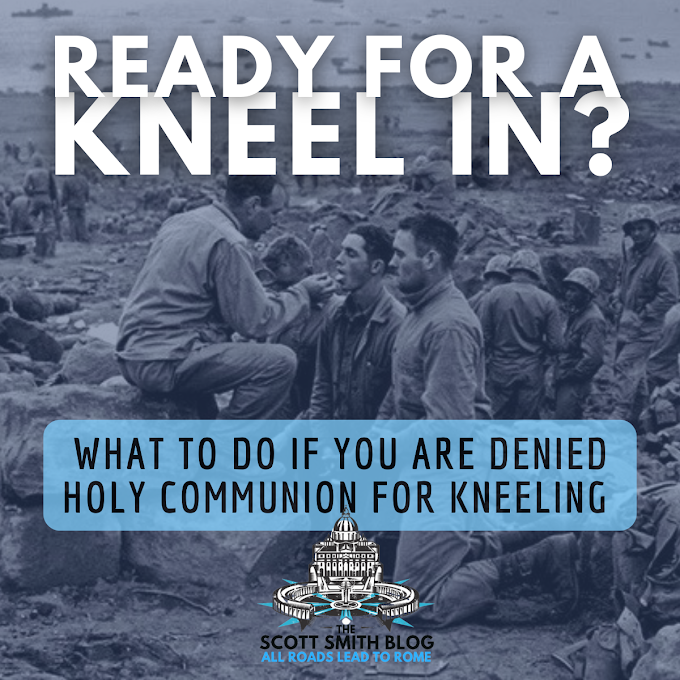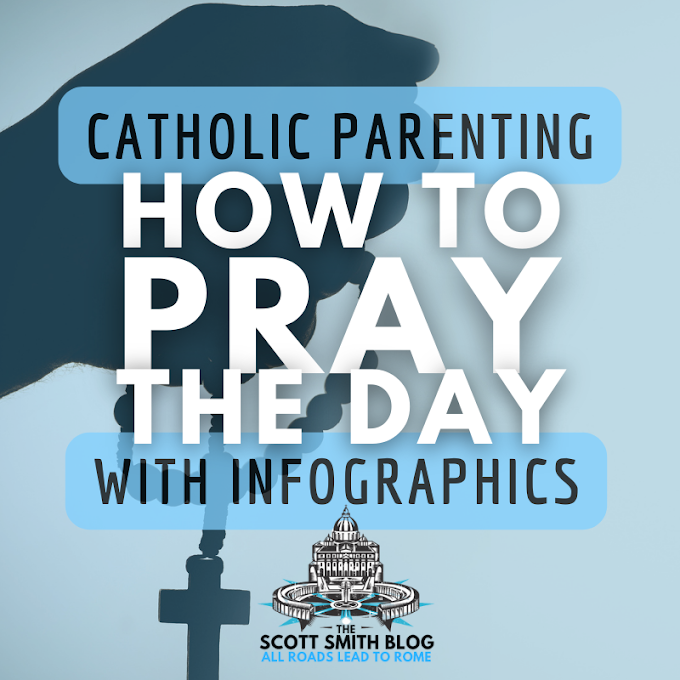I was recently asked for a good list of books on Church History. As a history nerd, I'm happy to oblige! I'm also posting my bibliography of Catholic Church history here in case it can help others.
Church History Bibliography - Table of Contents
Church History Textbooks
I taught Church History to high schoolers for some years and then converted the course for prison ministry at Angola State Prison. This is the primary text I used: The History of the Church by Fr. Peter V. Armenio (the green-now-red book below).
This textbook is part of the Didache Series by Midwest Theological Forum, which also includes a great introductory book on Scripture by Dr. Scott Hahn (the blue book).
Church History Classics
One of my all-time favorites is Hilaire Belloc's The Great Heresies. If nothing else, read the chapter on Islam, "The Great and Enduring Heresy of Mohammed". It will knock your socks off. Also, this one is in the public domain, so you can read it for free here at my other website Catholic History Nerd:
Though much more recent, this next book is something of a classic for readers of Church history. This is How the Catholic Church Built Western Civilization by Thomas E. Woods, Jr.:
Here's an excerpt from a review of the book by Bradley Birzer at The Imaginative Conservative:
Rather than presenting a narrative of the Church’s history, Woods opts for a topical approach, but he does so focusing on the history of the Church prior to the Enlightenment and the writings of Gibbon. He covers the Church’s vital role in the conversion of the barbarians; the importance of monasticism as a preserver of western civilization; the Carolingian Renaissance; the development of the university; the emergence of the Scientific Revolution; the glorious art and architecture of the medieval period; the rise of international law in the Catholic disputes over the nature of the soul after encountering American Indians; pre-classical economics; charity; and morality. Along the way, one learns lots of interesting facts and trivia. In the High Middle Ages, for example, every Cistercian monastery “had a model factory, often as large the church and only several feet away, and waterpower drove the machinery of the various industries located on its floor” (35). On the following page, the reader discovers that shortly after the year 1000, a monk flew a glider, which he had presumably built, more than 600 feet. Well beyond this fascinating minutia, though, Woods presents in an inspired fashion how the universality of Catholicism itself has given the whole of humanity the concept of inalienable rights, the natural law, and the dignity of the human person.
Church History Video Series
Some fantastic video series on Church History have been produced over the last 5-10 years. Top among these are Ascension Press' EPIC series by Steve Wiedenkopf and Bishop Robert Barron's Catholicism series:
While EPIC dedicates equal time throughout the entire 2,000 years of Church history, Bishop Barron focuses more on the early Church.
Church History Books on Oft-Misunderstood Periods: Dark Ages, Crusades, Inquisition
There are many areas of Church history that are getting a new look from historians. Some of the darkest periods of history, or so we've been taught, weren't actually dark at all. One such period is the so-called "Dark Ages". This is the period following the collapse of the Roman Empire, which, it turns out, was more of a slow transition than a catastrophic implosion, as it's often portrayed.
Here's an interesting read on the so-called "Dark Ages" or the Medieval Period:
Positively Medieval: The Suprising, Dynamic, Heroic Church of the Middle Ages by Jim BlosserBlosser, a professor of theology at Benedictine College in Atchison, KS, gives the reader a glimpse into the lives of some of the 'leaders and thinkers' of Western Europe during the Middle Ages, spanning the years 500 to 1500 A.D. (approximately). The book is divided into seven categories - missionaries, leaders, martyrs, monastics, mystics, thinkers, and Eastern Christians - and each category features four to six 'notables' in those areas. Some of the names are recognizable by many - St. Joan of Arc, St. Benedict of Nursia, Sts. Francis and Clare of Assisi, St. Catherine of Siena, St. Thomas Aquinas - but there are several that are less-well-known, such as St. Odo of Cluny, Gerard Groote, Blessed Jan van Ruysbruck, and Robert Grosseteste. Blosser introduces you to each figure with a brief biography and historical context, and then proceeds to share stories of their life or pieces of writings that the individual (or one of their companions) left to us.
Here are some more books about other misunderstood historical periods, the Crusades, the Inquisition, and the Reformation:
This is the "Real Story of" series by Steve Weidenkopf, lecturer of Church History at the Christendom College Graduate School of Theology.
Please let me know what is missing from this list by commenting below!


















3 Comments
Now, shameless self-promotion. Your readers - maybe you - might be interested in a non-scholarly look I took at that, St. Albertus Magnus, Pope Leo XIII, and truth, last year: http://brendans-island.com/catholic-citizen/sandra-and-tommy-apes-and-ethics/#truth